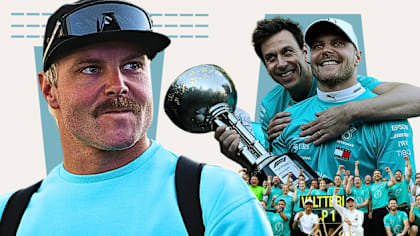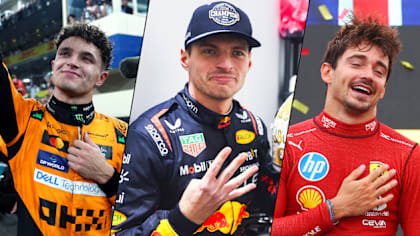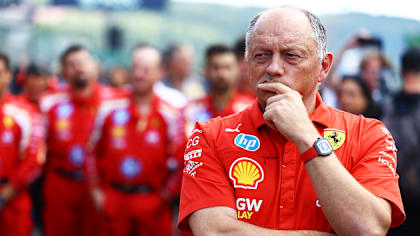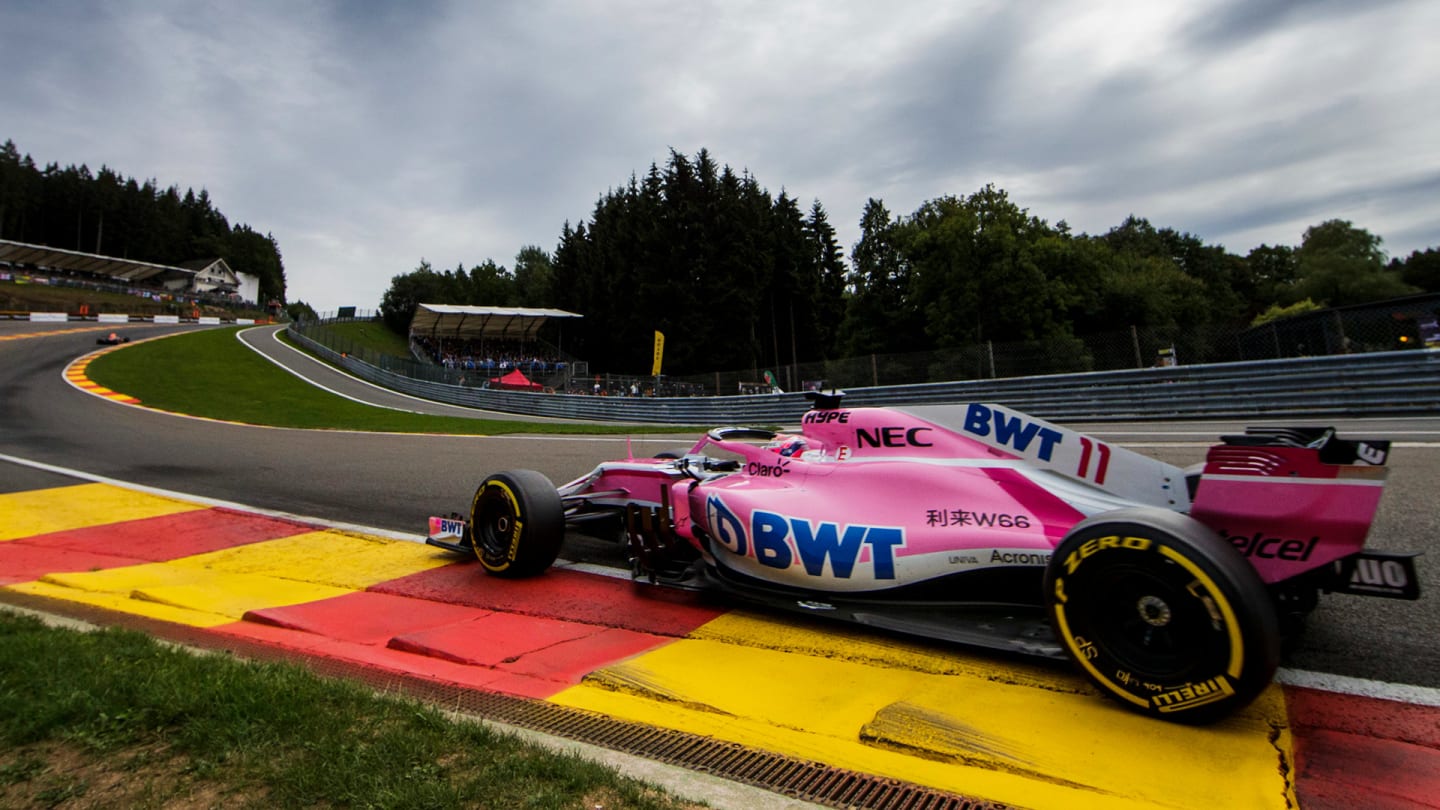
Feature
5 Reasons We Love... The Belgian Grand Prix

Share

After three weekends in a row without a Formula 1 race, the wait is almost over as we prepare to get back to action at the Belgian Grand Prix. Here's why we love going racing at Spa-Francorchamps…
1. It’s an amazing circuit
When it comes to asking anyone about their favourite F1 circuit, whether they’re a fan, a driver or a team member, Spa-Francorchamps is a name that will regularly crop up. The longest track on the calendar is also one of the greatest, and provides an all-round test of an F1 car.
Iconic corners such as Eau Rouge/Raidillon and Pouhon are spectacular, with the former seeing the cars descend rapidly from La Source – the first corner – before climbing steeply uphill and over a blind crest.
Not only is it a real challenge, it’s a venue that can also provide plenty of overtaking, with drivers able to slipstream from the top of the hill all the way along the Kemmel Straight until the Les Combes chicane, or similarly follow closely through Blanchimont for a chance to pass under braking for the Bus Stop chicane at the end of the lap.
F1 cars being pushed to their absolute limits around a beautiful track that winds among the trees of the Ardennes Forest - it really is a stunning sight.
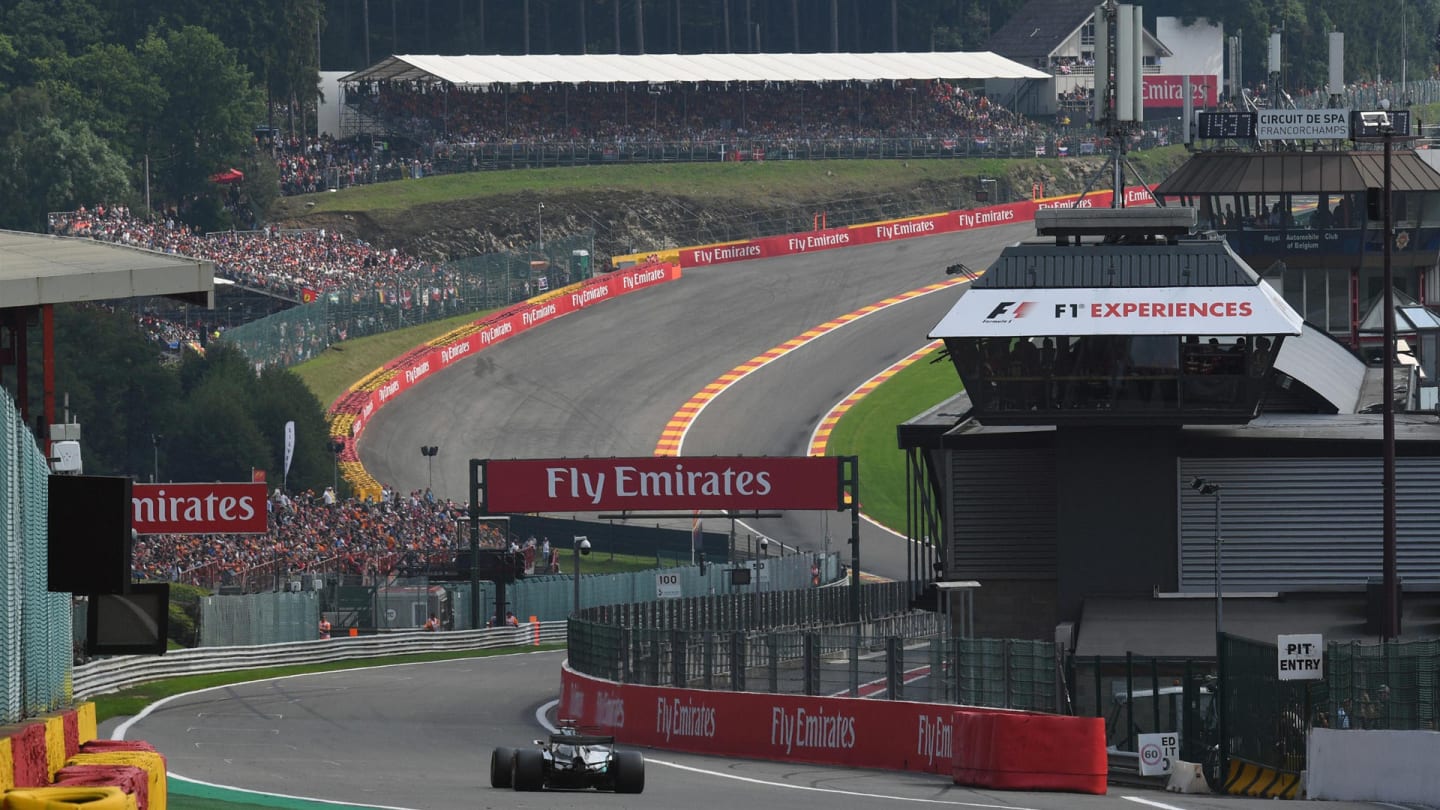
2. The driver can make a difference
And the track is certainly a test of the driver as well as of the car. Part of the challenge comes from the fact that there’s more than one way to go in terms of set-up when racing at Spa, with the track featuring three distinct sectors.
While the first sector and the final sector place an emphasis on straight-line speed, the middle sector really demands high downforce for cornering performance. If you opt for more downforce, then a driver has to make up for the time lost on the straights with speed through the corners, while a lower downforce set-up will gain time in a straight line but result in a tough car to handle through the middle sector.
Those trade-offs can also have an influence on the racing, too, with the lower downforce approach making you tougher to overtake compared to the higher drag one.
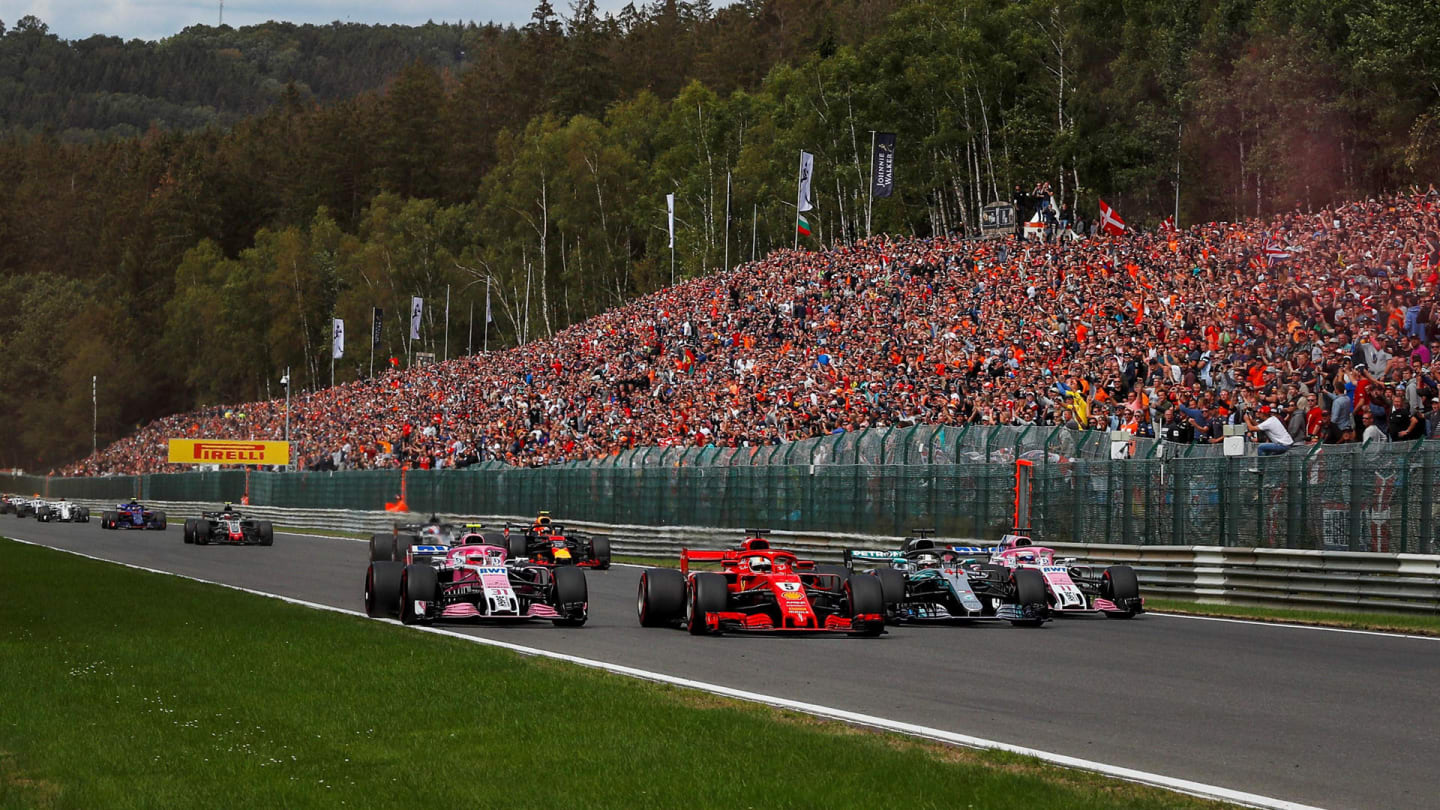
3. The weather mixes things up
One other challenge often comes from the weather, which can change so quickly at Spa-Francorchamps. Located in the Ardennes Forest, it’s a venue that can see high summer temperatures, but cold conditions and rain are also often a factor.
Aside from the testing conditions that rain alone usually provides, the length of the track also means it’s not uncommon for it to be raining on one part of the circuit but dry in another, making it extremely difficult to work out which tyre to be on and keep the car on track.
Some of F1’s most dramatic races have taken place at Spa courtesy of changeable weather, with Felipe Massa inheriting victory in 2008 after Lewis Hamilton and Kimi Raikkonen scrapped for the lead as rain fell in the closing laps, while a wet start in 1998 saw one of the most expensive crashes in F1 history as the majority of the grid were caught in an incident on the run down from La Source.
CARNAGE: The multi-million dollar start crash at Spa ‘98
4. The fans make a great atmosphere
Just two European rounds remain before we return to flyaway races, and those rounds are set to take place at two venues where the fans create a special atmosphere.
While Italy sees a partisan crowd, in Belgium there is a mix of nationalities and supporters, with many F1 fans eager to visit the iconic circuit. The track’s location makes it a relatively easy venue to access from Britain, France and Germany, but those that seem to make their presence felt the most are the Dutch.
Since the arrival of Max Verstappen in Formula 1, Spa has been one of the races that thousands of Dutch fans – usually wearing orange – head to. Verstappen even has a Belgian mother, and with Stoffel Vandoorne no longer racing in F1, will be the closest thing to a home driver.
As the track is a fair drive from the nearest major city, many fans choose to camp for the weekend, adding to the atmosphere as they are based at the circuit throughout. Even if it does mean they have to brave the aforementioned weather…
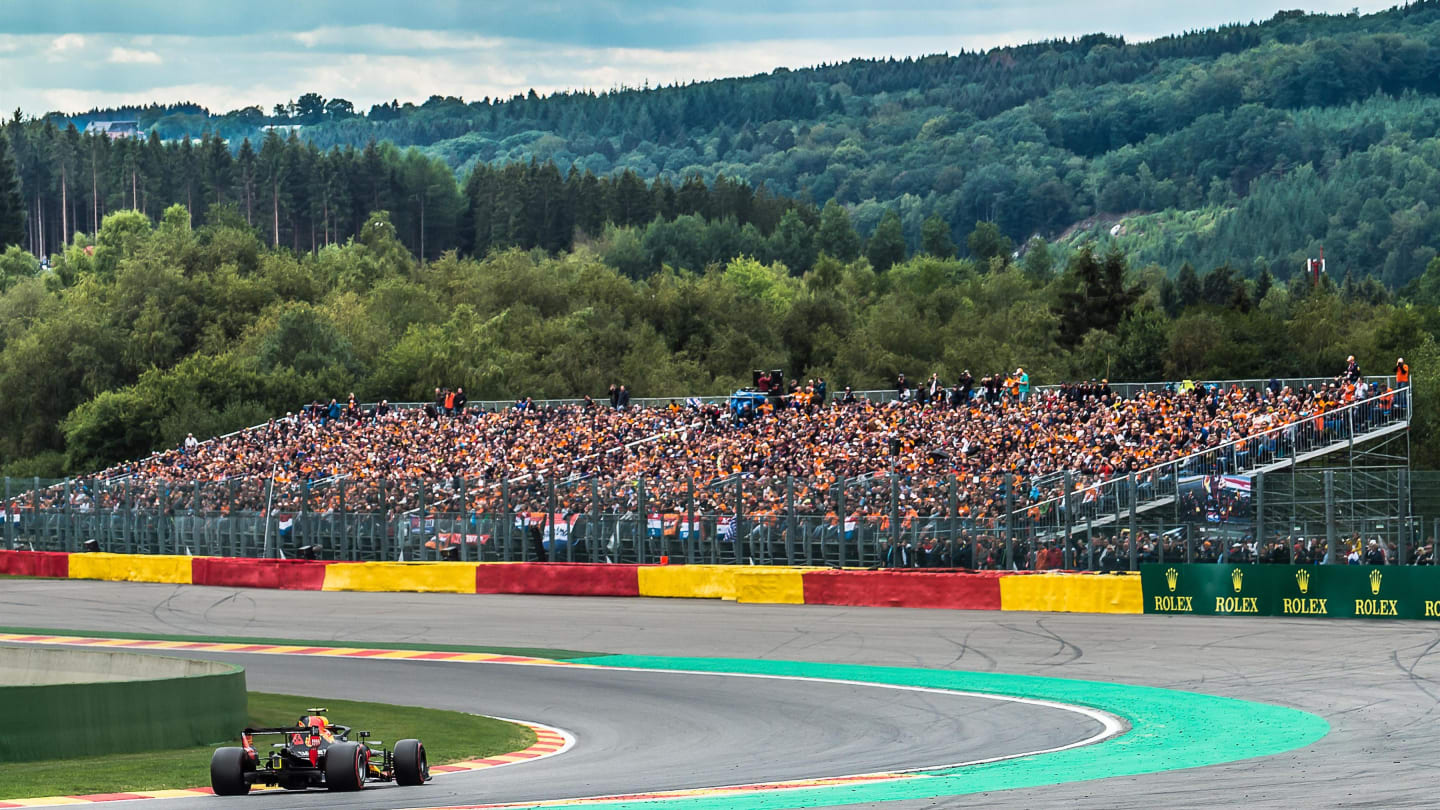
5. Racing is back
The mandatory two-week factory shutdown that all the teams have to adhere to during August means a total of four weeks between races. But Belgium will kick off a busy run of nine rounds in 13 weeks towards the end of the season.
Drivers and teams have been able to take some time off in the middle of the season, but now that they’ve recharged their batteries, Spa means a return to action and a more intense focus on championship positions.
FAN POWER RANKINGS: Who’s your top driver of 2019 at the halfway mark?
And if you weren’t impatient enough having to wait for racing to return, the four races before the break will have really whet the appetite after thrilling battles in Austria, Britain, Germany and Hungary resulted in Max Verstappen and Lewis Hamilton taking two wins apiece. Will it be one of those two who triumphs at Spa, or will Ferrari finally break their duck this season at a track that’s expected to suit the strengths of the SF90?
Once the summer break is out of the way, the driver market also tends to heat up, with teams trying to finalise their line-ups for the following season. And speaking of future drivers, as well as F1, Formula 2 and Formula 3 resume their seasons at Spa, where the next generation will be trying to prove themselves in front of the F1 paddock once again.
YOU MIGHT ALSO LIKE
News Crypto.com and Formula 1 extend partnership through to 2030
Feature ANALYSIS: Why Bottas' return to Mercedes makes perfect sense for both sides
Feature EXCLUSIVE: The Top 10 F1 drivers of 2024 – as chosen by the drivers
FeatureF1 Unlocked ‘If you don’t take risks, you’re dead’ – Fred Vasseur on how he turned Ferrari back into title contenders, and his goals for 2025
/Formula%201%20header%20template%20-%202024-12-20T091526.666.png)

